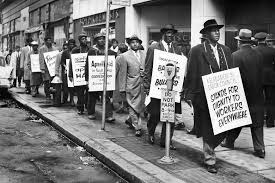Herein this post we discussed the early history, the colonial era, independence, political history and the civil war of Ivory Coast.
EARLY HISTORY
The date of the first human presence in Ivory Coast (officially called Côte d’Ivoire) has been difficult to determine because human remains have not been well preserved in the country’s humid climate.
The African continent, situated between Europe and the imagined treasures of the Far East, quickly became a destination for the European explorers of the fifteenth century. The first Europeans to explore the West African coast were the Portuguese. Other European sea powers soon followed, and trade was established with many of the coastal peoples of West Africa. At first, the trade included gold, ivory, and pepper, but the establishment of American colonies in the sixteenth century spurred a demand for slaves, which led to the kidnap and enslavement of people from the West African coastal regions. Local rulers, under treaties with the Europeans, procured goods and slaves from inhabitants of the interior. By the end of the fifteenth century, commercial contacts with Europe had spawned strong European influences, which permeated northward from the West African coast.
Read: POLITICAL HISTORY OF CAMEROON
Ivory Coast, like the rest of West Africa, was subject to these influences, but the absence of sheltered harbors along its coastline prevented Europeans from establishing permanent trading posts. Seaborne trade, therefore, was irregular and played only a minor role in the penetration and eventual conquest by Europeans of Ivory Coast. The slave trade, in particular, had little effect on the peoples of Ivory Coast. A profitable trade in ivory, which gave the area its name, was carried out during the seventeenth century, but it brought about such a decline in elephants that the trade itself virtually had died out by the beginning of the eighteenth century.

FRENCH COLONIAL ERA
In 1886, to support its claims of effective occupation, France again assumed direct control of its West African coastal trading posts and embarked on an accelerated program of exploration in the interior. In 1887 Lieutenant Louis Gustave Binger began a two-year journey across parts of Ivory Coast’s interior. By the end of the journey, he had concluded four treaties establishing French protectorates in Ivory Coast. Also in 1887, Verdier’s agent, Marcel Treich-Laplène, negotiated five additional agreements that extended French influence from the headwaters of the Niger River Basin through Ivory Coast.
Côte d’Ivoire officially became a French colony on 10 March 1893.Binger, which had explored the Gold Coast frontier, was named the first governor. He negotiated boundary treaties with Liberia and the United Kingdom (for the Gold Coast) and later started the campaign against Samori Ture, a Malinké chief, who fought against the French until 1898.
Throughout the early years of French rule, French military contingents were sent inland to establish new posts. The French penetration and settlement encountered much resistance from locals, even in areas where treaties of protection had been enforced. Among those offering greatest resistance was Samori Touré, who in the 1880s and 1890s was establishing an empire that extended over large parts of present-day Guinea, Mali, Burkina Faso, and Ivory Coast.
INDEPENDENCE
As early as 1944, Charles de Gaulle proposed to change France’s politics and take “the road of a new era.” In 1946, the French Empire was converted into the French Union which was itself superseded by the French Community in 1958.
In December of that year, Ivory Coast became an autonomous republic within the French Community as a result of a referendum on 7 August that brought community status to all members of the old Federation of French West Africa except Guinea, which had voted against association. On 11 July 1960 France agreed to Ivory Coast becoming fully independent. Ivory Coast became independent on 7 August 1960, and permitted its community membership to lapse. It established the commercial city Abidjan as its capital.
POLITICAL HISTORY
The Politics of Ivory Coast takes place in a framework of a presidential representative democratic republic, whereby the President of Ivory Coast is both head of state and head of government, and of a multi-party system. Executive power is exercised by the President and the Government. Legislative power is vested in both the government and parliament.
The capital since 1983 is Yamoussoukro; however, Abidjan remains the commercial center. Most countries maintain their embassies in Abidjan. A civil war was fought in Ivory Coast between 2002–2004 and a second civil war broke out in March 2011 following contested elections that saw president-elect Alassane Ouattara come into power in 2011 and reelected in 2015. It is located in Africa.
CIVIL WAR
Troops, mostly hailing from the north of the country, mutinied in the early hours of 19 September 2002. They soon after launched attacks in many cities, including Abidjan. By lunchtime, they had control of the north of the country. Their principal claim relates to the definition of who is a citizen of Ivory Coast (and so who can stand for election as president), voting rights and their representation in government in Abidjan. The events in Abidjan show that it is not a tribal issue, but a crisis of transition from a dictatorship to a democracy, with the clashes inherent in the definition of citizenship.
Forces involved in the conflict include:
- Government forces, the National Army (FANCI), also called loyalists, formed and equipped essentially since 2003
- The Young Patriots: nationalist groups aligned with President Laurent Gbagbo
- Mercenaries recruited by President Gbagbo:
- allegedly, Belarusians
- some former combatants of Liberia, including under-17 youths, forming the so-called “Lima militia”
- New Forces (Forces Nouvelles, FN), ex-northern rebels, who hold 60% of the country; their political expression is the Movement patriotique de Côte d’Ivoire, or MPCI